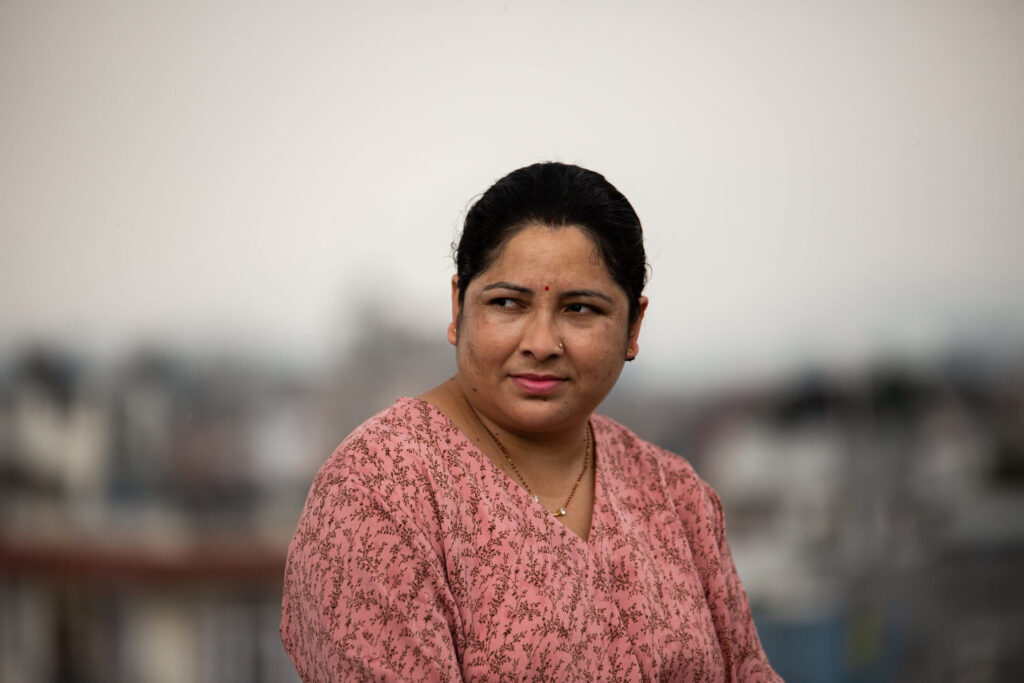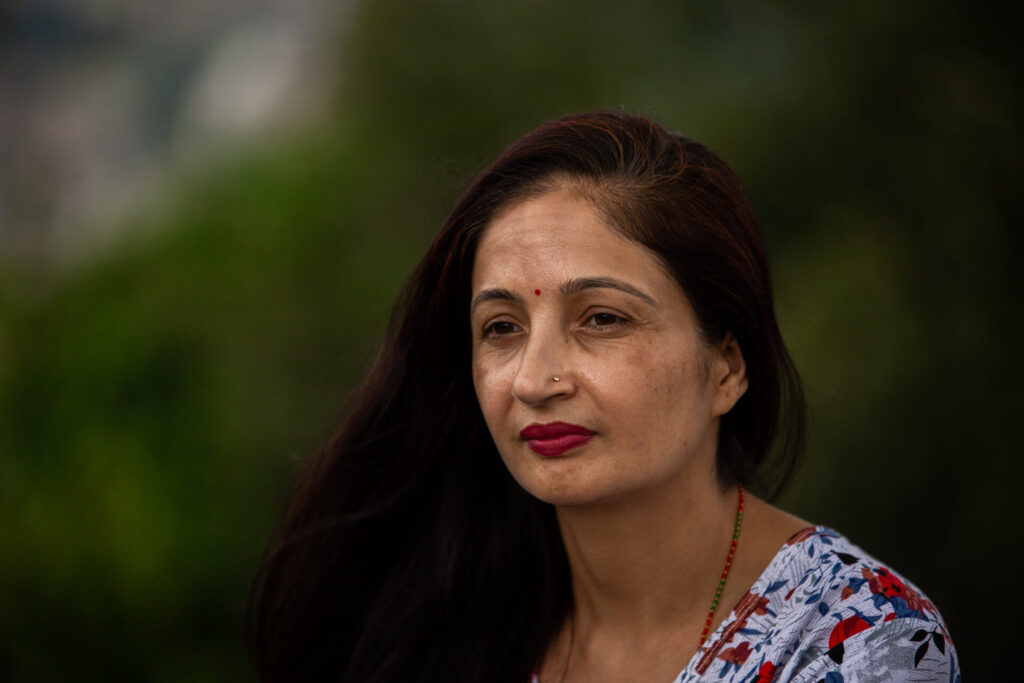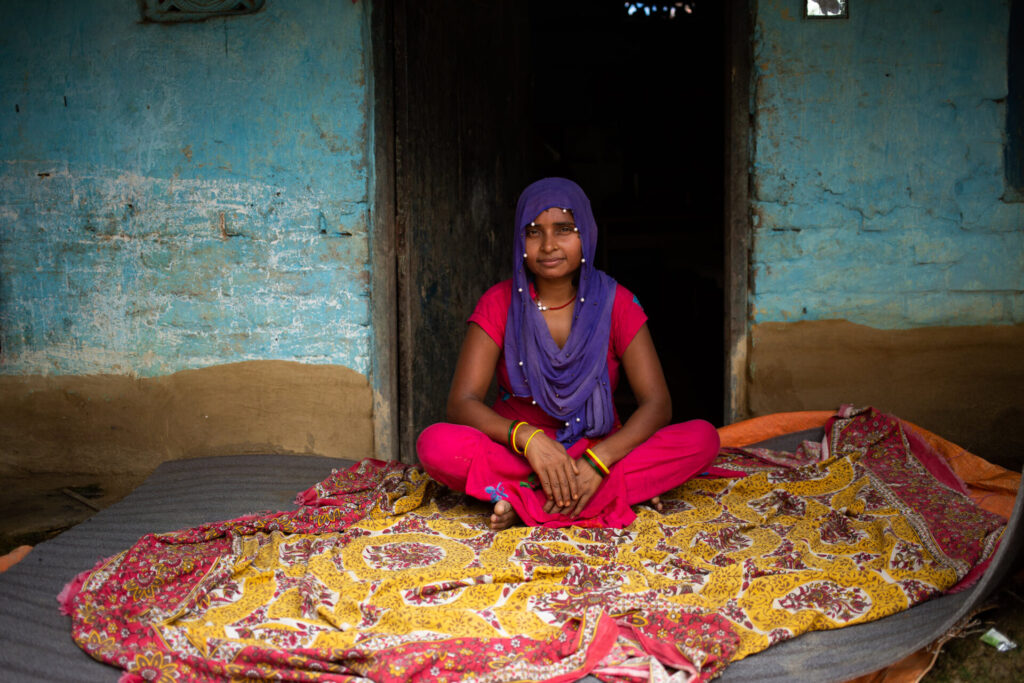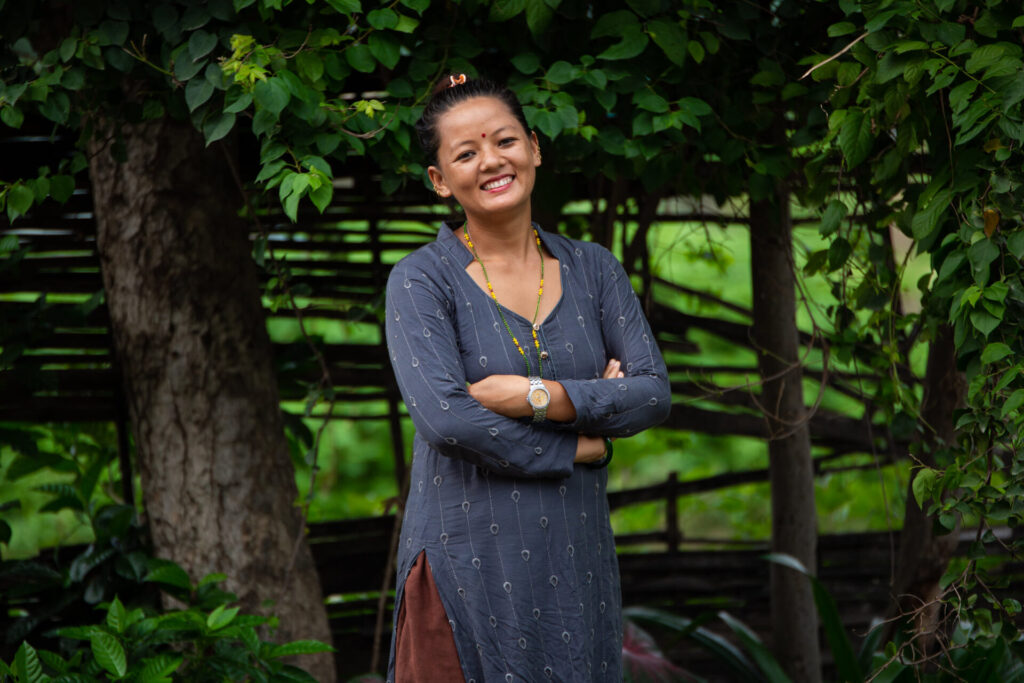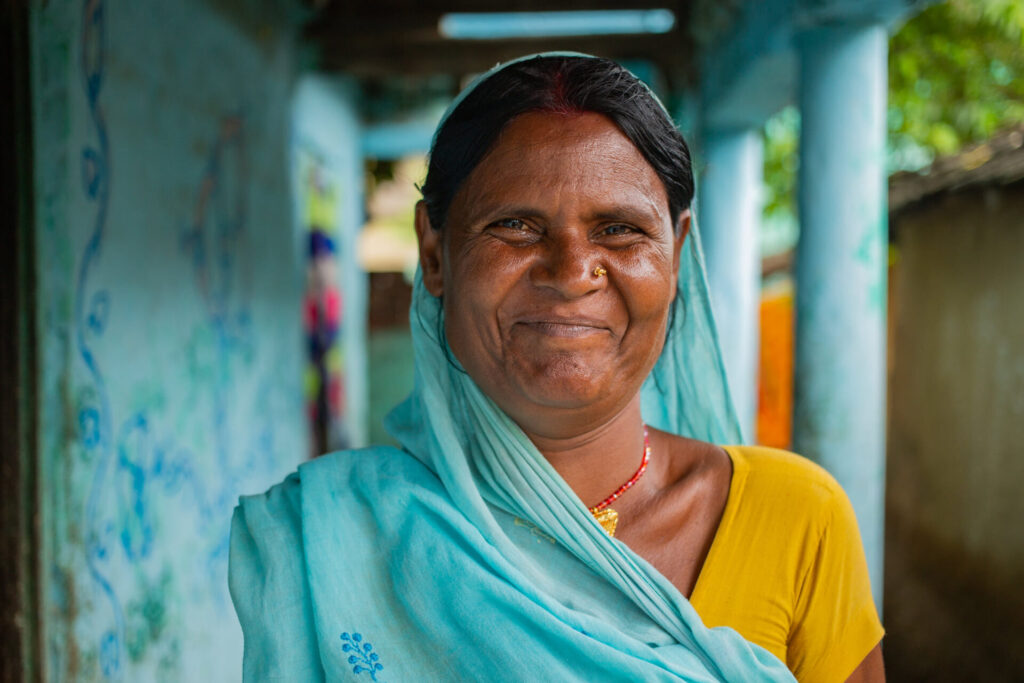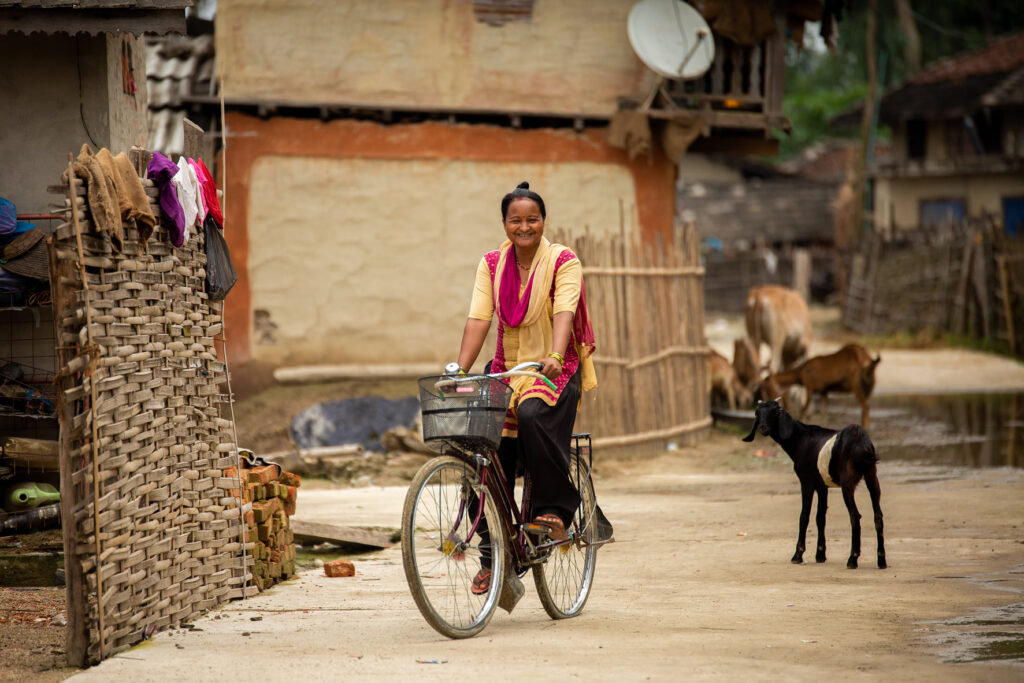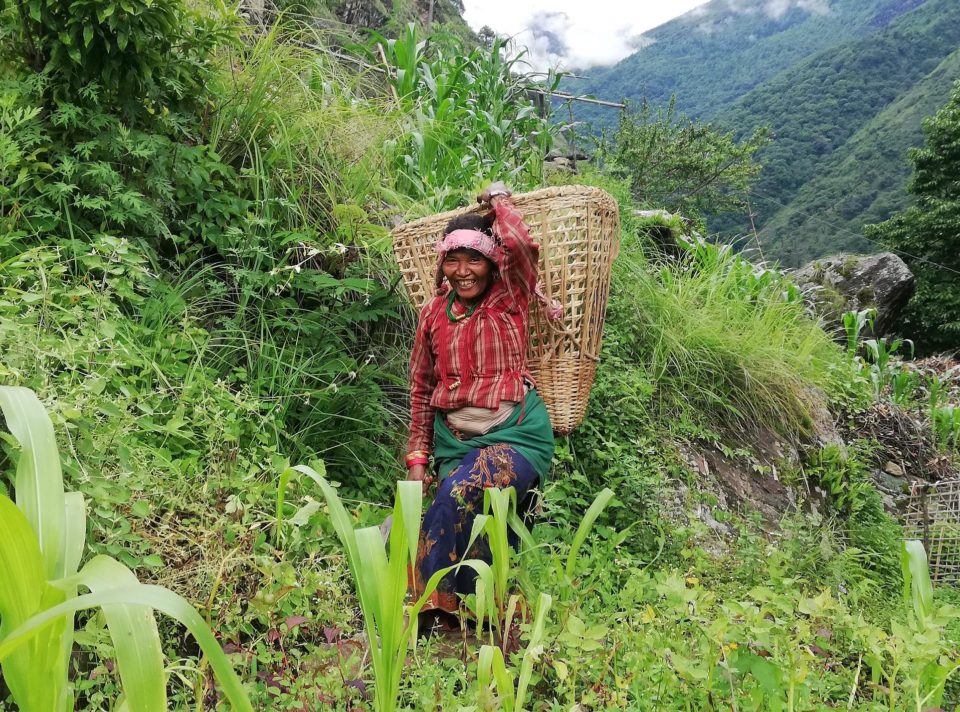
Sarkini Khadka Rigu, Gaurishankar GP 9, Dolakha
“I am the eldest in the family. We had a large family, 11 or 12 including all my siblings, mother, and father. My parents are Tamangs. We were all uneducated in our society. There were no schools to go to read. I was a daughter and schools were not for me. My brothers could not attend as the nearest was two days walk and Father could not afford the rent for my brothers to live near the school.
Even though we were all poor, my childhood was good. Dirty, muddy, wet, blood and laughter. All of us in the society lived in poverty and scarcity so claiming that it was only my family would not be the right thing to do.
We had to make a long journey to Barabise for rice and salt. I went to Barabise myself on several occasions. It would take me weeks to make it back home. The occupation of agriculture was not so good, maybe our settlement was on the side of a cliff and the land was not so fertile. Whatever we gathered, it would last for 6 months only. I don’t know how we managed the other six months. Everyone in our community went through the same struggles. Who was rich or who was poor are difficult questions to answer. Now as we have seen markets and towns we know about money. If you have more they call you rich and if you have less they call you poor. Some say beggars and some say non-beggars. But we did not know all of this before. It could be because we had no education?
As days passed taking care of the children at home, I was married to a man from a nearby village and sent away. Not long after, I had a son. We were still poor but we were getting by eating spinach and nettle leaves. When my son reached 4, a neighbor came running with bad news. “Your husband has fallen off the cliff and died”. My life became heavy for me after my husband left me. With a son and the scarcity, I did not know what to do. I would cry and cry but no god would come to solve the problems of my empty pots and pan. No god filled the hollow stomach of my son. I started thinking of my son’s future if I managed to keep him alive. That scared me more. A man from a nearby village came and said he would marry me and take care of my son.
Against the will of society and in the hope that the needs of my son would be met, I married a Chettri man. But the community of my parents did not accept the relationship I had started with my new husband. I was ostracised and outcast. For many of them, I was a widow and that I should spend the life mourning the death of my husband and that I should not marry or restart my life. And to makes things worse for them the man I was marrying was not a Tamang but a Chettri.
My husband supported me. He lifted me up and took care of my son. With him, I found hope. When my daughter was born, he could not contain his happiness. He invited everyone to see the new baby. But our happiness did not last for long. Our girl only survived for 21 days. If I sit to think, I can only hear the wailing of my husband. His grief touched the sky. I had become numb to pain but to see my husband like that broke me too.
As time went by, life placed its demands on us and we moved on. Now I have 5 children including the first son from my deceased husband. And I have 3 girls. Everyone is living good lives. Everyone has their skills and everyone has their own tools to dig and grow. The only regret I have today is that I was not able to send my daughters to school. It was too far and I was afraid for their safety. People will tell me I discriminated against my daughters but if I go and tell them why I did what I did, they will understand. They will not love me any less. A heart of a mother has love for everyone.
Today, I am happy with my life. I do not have energy in my body but I have grandchildren and my family around me. Recently, my sons and daughters send us to Kathmandu. It was the first time I had flown in an airplane. I saw big buildings that reached up to the sky. I had only seen trees touch the sky all my life.”




